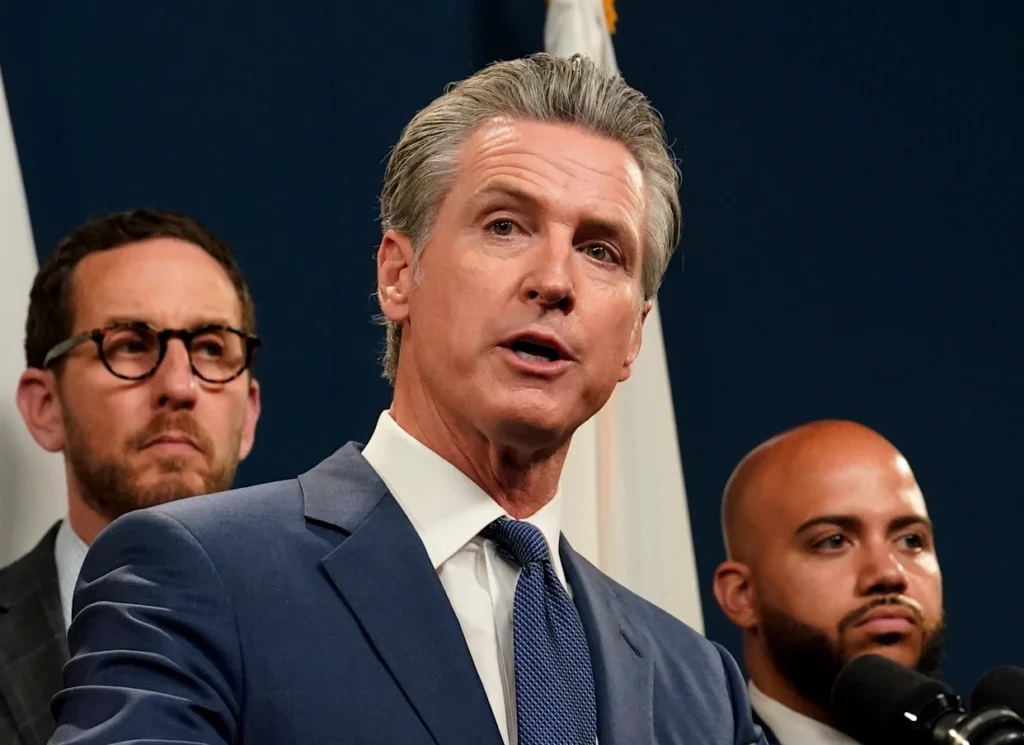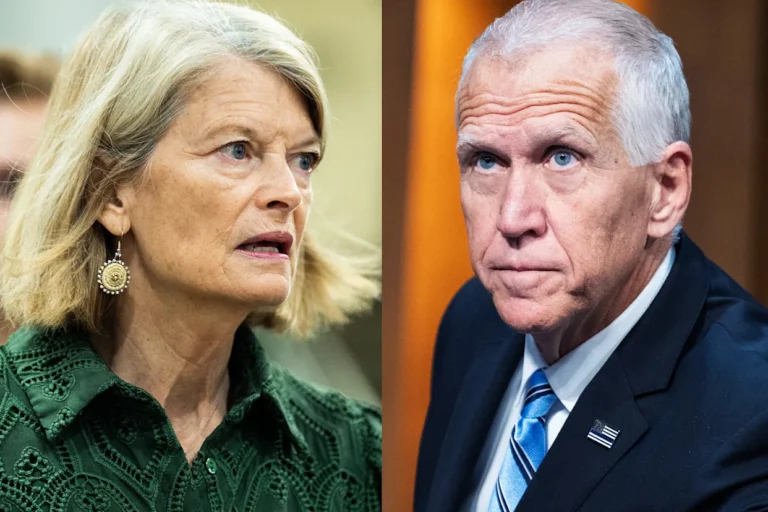
GARDEN GROVE, California — Republicans wield almost no power in California. But as a moribund state party gathered here over the weekend, it confronted an even grimmer reality now suddenly settling in: If the state gerrymanders its congressional map, they’ll practically be an endangered species.
“It’s a guillotine,” said Dale Quasny, a party delegate and real-estate broker from suburban Los Angeles County. “We won’t be able to pick up the pieces and move forward. I mean, we were making a little headway, but this would be a catastrophe.”
Long locked out of power in Sacramento, one thing that Republicans here and nationally have counted on for years from California was influence in U.S. House races — and the ability to help deliver Republican majorities by winning battleground races in the state’s Central Valley and Orange County.
Now they’re on the brink of losing even that — a consequence of the redistricting wars that could cost the GOP as many as five House seats in California.
It is in part the Republican president, Donald Trump, who got them here. The GOP base in the state is as ardently MAGA as anywhere. But it was Trump’s push for a Republican gerrymandering in deep-red Texas that sparked a national battle over redistricting, provoking Gov. Gavin Newsom and Democratic leaders to respond with a Nov. 4 ballot measure to gerrymander California’s lines.
Even Republicans here, while chiding Newsom, were critical of Trump’s redistricting effort. And as rank-and-file members of the GOP gathered in Orange County for their annual convention, the festivities were overshadowed by angst over the consequences of redistricting in a deep-blue state.
“I’m certainly frustrated that our party’s leadership has not been more proactive in trying to stop a redistricting war,” said Republican Rep. Kevin Kiley, whose seat in the Sacramento suburbs is at risk of being drawn out of existence. “We shouldn’t be having mid-decade redistricting in any state.”
If there is any bright spot for Republicans, it’s that the left has had some difficulty recently with ballot measures. Voters last year rejected statewide proposals to ban forced prison labor, raise the minimum wage and expand rent control. [Non-partisan line-drawing is overwhelmingly popular in California.] And if Republicans can defeat Newsom’s redistricting effort, they would hand him a significant setback on the cusp of a likely 2028 presidential campaign.
Even internal polling from Democrats in the state Legislature suggests the GOP’s messaging on the initiative could be effective with some voters, including that “two wrongs don’t make a right” and that it “undermines democracy.”
While polling shared with Democrats in the state Assembly last week and obtained by POLITICO found a majority of voters support a redrawn map, it also suggests the plan could be vulnerable if Democrats don’t turn out in November, with many independent voters skeptical of the concept of gerrymandering.
“When you fight a fire with fire, you could get really burned,” said James Gallagher, the Republican leader in the state Assembly.
Elsewhere across the country, Republicans have embraced redistricting as an opportunity to maintain the party’s hold on the House in the midterms, not just in Texas, but Missouri, Indiana and other red states.
But at the GOP’s convention in Orange County — the ancestral power and money center of conservatism in California — the sense of a party under siege was on full display, with hundreds of delegates and party activists cramming into a Hyatt meeting hall to strategize over how to defeat redistricting.
Here, Republican leaders were appealing to “good government,” warning of the perils of single-party rule and extolling the virtues of California’s nonpartisan citizen redistricting commission — a last-ditch effort to cling to their waning influence in the Golden State.
“More conversation leads to better laws,” said Corrin Rankin, the state party chair and a Trump loyalist. “This is about Californians being able to choose who represents them.”
Still, the GOP hasn’t won a statewide elected office since 2006, when then-Gov. Arnold Schwarzenegger secured a second term. And Democrats have held an impregnable supermajority in the statehouse for nearly a decade — leaving the GOP with little, if any, leverage to shape policy.
“We are already at a disadvantage in this state,” said Carlos R. Hernandez, a delegate and social media consultant from San Francisco. “We have to act as the U.S. Army did when it landed on the beach at Normandy.”
Some GOP delegates said they worry the state party isn’t organized enough to fight Democrats, who have a tremendous fundraising advantage in the state.
John Turnacliff, chair of the Republican Party in Marin County, a deep-blue bastion across the Golden Gate Bridge from San Francisco, said the state party is “working on a cohesive message” and that “it could come together in the next few weeks.”
But he knows what the GOP is up against. He said the party needs to “play harder ball” to prevent a defeat.
Sipping a cocktail at a reception on Friday night, he said, “It’s a toss-up.”









